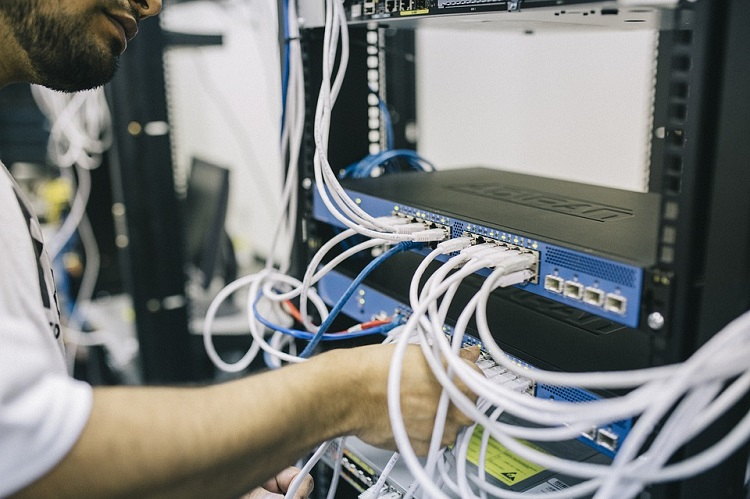The title of “Network Engineer” sounds fancy, but for many who may be new to the industry or interested in it, they may not be familiar with what that means. If you have any interest in learning more or becoming a network engineer, here are some basics to go over. We’ll look at their primary job responsibilities, and typical settings network engineers work in.

What Is A Network Engineer?
A network engineer is responsible for ensuring that a company’s system and network are running smoothly. A network engineer is a job title associated with troubleshooting a network or system that runs into any issues. You are working with servers, routers, and overall network connectivity.
Everything you see from the firewalls, switches, applications, and devices contributes to the functioning of the network. If any problems arise, you have to address those outages to relieve the issues between service providers and the corresponding company.
Variety of Work
The work you do as a network engineer will vary from company to company and job to job. The experts at https://gigmocha.com/ccna-career-path/ will relay the fact that the role of the network engineer encompasses many aspects, and those will vary with each job description and set of expectations.
If you are working for a smaller company, your responsibilities may be a lot larger than that of someone working for a larger company. In smaller businesses and environments, you may be responsible for the internal infrastructure, running cables, doing more tedious things.
You may be working with others more collaboratively in some roles, while other positions will be more isolated and independent. There is a balance of tech and people that you will be dealing with.
Some days or roles may require you to sit behind a computer, configure things, create diagrams, and map out different networks to troubleshoot. You may have to present certain aspects to others and interact with people face to face to fix problems. It all depends on the company and the role you are taking on.
Who You Work With
As a network engineer, it has been established that you will work within the systems of an extensive network. Not only does that mean that you will work with a large variety of components, but it also means you will be interacting with a large group of people.
The types of people you will be working with will range from help desk technicians, desktop engineers, people in charge of storage, and experts designated to security systems. All these roles are crucial to the functioning of your networks and data centers.
Switches, Routers, Firewalls
As an engineer, you will be working a lot with certain things that include switches, routers, and firewalls, which are the three big things for your role. You will be closely monitoring the connections running within your network and be responsible for their operations.

You can reroute connections with ethernet cables, change speeds, set up local networks, manage traffic, and connect to various devices. The network connectivity requires some sort of physical configuration that you will need to manage.
Security Admin
In some circumstances and in some businesses, the network engineer may be responsible for ensuring a network’s safety and security. This is more common with smaller companies as the network is easier to manage and keep an eye on.
With larger companies, their networks and systems may be a lot more complicated and require dedicated professionals to manage certain aspects. In addition, bigger companies can afford to staff different roles, unlike smaller companies with tighter budgets.
Analysis And Design
One other aspect that is looked for in a network professional is the right analytical brain. You want to think about how the network functions as a whole and be able to design a good network architecture for a business to function.
You want to diagram your company how your different desktops will communicate with each other, how the information will pass through, how your servers and storage will function, how various offices will communicate if working remotely from each other.
So as a network engineer, you want to understand not only the local area network within your business but also how the wider area network will function smoothly, incorporating the needs of your company and third-party companies as well.
Becoming a network engineer comes with many benefits. From the flexibility of the work, and it being a rewarding experience to fix problems, to financial stability, there are many reasons to consider. There is also a great deal of opportunity to grow how you like. If you are still curious about network engineers, there is plenty to research.



















